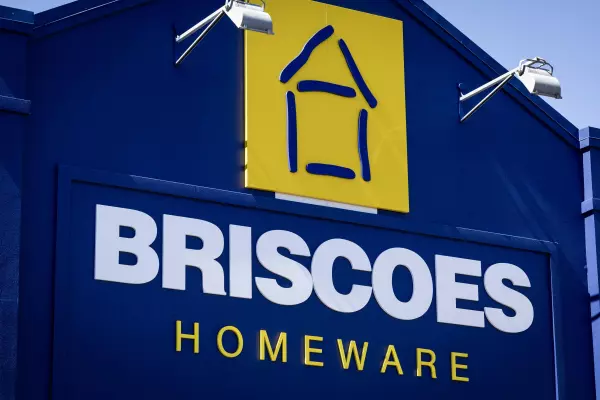New Zealand boards of directors, with Metlifecare being a current example, are struggling to deal with takeover offers.
This is because the rules of the takeover game have changed dramatically, and most boards have been totally unprepared for these changes.
The changes mean that directors now make the first decision on whether a takeover offer is fair and reasonable whereas shareholders made this determination in the past.
Directors are in a poor position to make these vital decisions because they haven’t engaged with shareholders, they don’t know how investors value their company or whether they are short-term or long-term shareholders.
The 1980s
Takeover activity in the 1980s was governed by the Companies Amendment Act 1963, which only covered written offers.
Verbal offers, or bidders standing in the market, were very common in the 1980s, particularly from Brierley Investments. These avoided the requirements of the 1963 Act because they contained no written content.
Brokers stood in the market to purchase up to 50 percent of a company in quick time. Only broker clients and favoured fund managers would be offered the premium control price with most shareholders only finding out about these partial offers after they had been completed.
In this way a few large fund managers determined whether there would be a change in control of a listed company.
The Securities Commission was totally frustrated by these dawn raids because they resulted in insufficient competition for control of NZ companies and only a few select shareholders received the premium control price.
Target company directors were also exasperated by verbal offers because they usually resulted in a change of control in just a few hours.
Thus, in the 1980s, bidders for control, and the large shareholders of the target companies, were in the box seat while minority shareholders and target company directors had virtually no involvement in changes of corporate control.
Lion Corporation & LD Nathan
The controversy over New Zealand’s wild west approach towards takeovers reached a peak in 1988 when Lion Corporation made an offer for LD Nathan, with the latter 35 percent owned by Fay, Richwhite.
The offer was $9.20 cash per share to Fay, Richwhite and one Lion share for every one LD Nathan for all other investors. This meant that Fay, Richwhite received a 64 percent premium over other shareholders because Lion’s share price was only $5.60 at the time.
There was no requirement to commission an independent report, but a Lion director published his own analysis. This concluded that the offer was fair to non-Fay, Richwhite shareholders because Lion’s share price was expected to appreciate in the future while cash didn’t have the same upside potential.
Lion held its ground while arguing that small shareholders were free-loaders and it was under no legal or moral obligation to offer the same price to all shareholders.
Malaysian Breweries, which owned 22 percent of Lion, was furious with the premium price paid to Fay, Richwhite. It sold its Lion stake and purchased a controlling stake in arch-rival DB Group.
1990s
The debate over takeover rules and regulations heightened in the 1990s after the government introduced the Takeovers Bill and established a Takeovers Panel in 1991.
The Panel issued a draft Takeovers Code in 1993 but this was greeted with massive opposition from the Business Roundtable, under Roger Kerr, and the Stock Exchange, under chairman David Wale.
The NZX was a broker-owned mutual at the time and its members, particularly the large brokers, made a fortune from first come, first served on-market offers.
Opponents of the takeovers bill argued that minority shareholders’ rights and directors’ duties should be dealt with in other legislation, not through takeovers legislation.
Justice Minister Doug Graham strongly supported the proposed takeovers legislation, but his advocacy was rejected by his National government colleagues.
Meanwhile, the NZX introduced its own takeover rules in an attempt to fend off the proposed government legislation.
However, the new Labour Government, under the driving force of Commerce Minister Paul Swain, supported the proposed legislation and a Takeovers Code – established under The Takeovers Act 1993 - came into force on July 1, 2001.
The new code was a radical change because under its rules offers for control had to be made to all shareholders and a pause period was required to enable other parties to contemplate a higher offer.
This met the Securities Commission’s concerns that all shareholders should be treated equally and that there was a competitive market for control of NZ companies.
But it also represented a substantial shift in power whereby all shareholders were involved in the process while in the past the big brokers and large fund managers were the dominant parties.
Schemes of Arrangement
But bidders and their investment bankers didn’t like the new rules because they believed the 90 percent compulsory acquisition threshold was too high and retail investors had too much influence.
Their reaction was to convince target company directors that schemes of arrangement were a better option than conventional takeover offers.
Under a scheme of arrangement, the bidder goes to the board of the target company and asks directors to approve the offer price and conditions. If the target company directors accept the proposal, they put the scheme resolution to shareholders. A scheme is then approved if 75 percent of votes cast vote are in support and at least 50 percent of total shares on issue have voted. If the voting thresholds are met, it only needs support of a majority of total shares on issue.
Under a conventional takeover bid, the offer is made directly to all shareholders and the offeror can only achieve full control when it receives acceptance in terms of 90 percent of all the shares on issue and moves to compulsory acquisition.
This means that under a conventional code offer the bidder must reach 90 percent but under a scheme full control can be achieved with as little as 50.01 percent support of the total shares.
These are two totally different ways of acquiring control of companies, yet the Takeovers Panel has been willing to accept scheme arrangements. This is not surprising as panel members are mainly comprised of investment bankers and high-power securities lawyers.
There are four strong arguments that schemes take us back on the road to the wild west days of the 1980s:
- It is easier to gain control of a company because schemes have lower thresholds
- Individual investors have less influence because of these lower thresholds
- Large shareholders have more influence as does NZ Super with, for example, its 19.9 percent Metlifecare stake
- Schemes suit the finance sector because the lower thresholds make it easier for investment bankers to claim their lucrative success fees.
Target company directors
But the biggest issue is the ability of target company directors to determine whether scheme proposals are fair and should be put to shareholders.
This is a problem because NZ directors, unlike their Australian counterparts, make little attempt to communicate with shareholders. This is a role for their chief executive and investors relations team as far as they are concerned.
In a decade managing a large KiwiSaver and PIE fund less than a handful of NZ company chairman wanted to meet to discuss the fund’s shareholding in their company. I didn’t receive a single question about the reason why the fund had invested, was it a long-term or short-term holder, or had it ever short sold the stock?
All questions were about corporate governance issues, the composition of boards, director fees, auditor fees etc.
How can directors make decisions to accept or reject scheme proposals when their shareholders’ engagements have been restricted to corporate governance issues?
Board confusion is clearly evident regarding Metlifecare’s scheme of arrangement with four directors supporting the $6 a share offer, one abstaining because of her previous relationship with the NZ Super Fund and chairman Kim Ellis recommending that shareholders vote against the scheme.
This is an extraordinary situation as the chairman of a company should have a far better understanding of shareholders than the other directors.
Schemes are not working in NZ, except for large fund managers and investment bankers.
They should be prohibited and we should return to the main spirit of the Takeovers Code, which was to allow all shareholders to have a say in the change of corporate control, have a 90 percent full control requirement and reduce the total dominance of large shareholders.
Disclosure of interests; Brian Gaynor is non-executive director of Content Limited, the publisher of BusinessDesk, and of Milford Asset Management.
This column has been corrected to show that a scheme needs support of at least a majority of total shares on issue to succeed as well as meeting the two voting thresholds.















